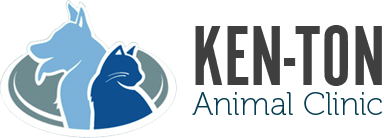Library
-
Rabbits are herbivores and are considered grazers. Rabbits should have a daily diet of mostly hay, a smaller amount of fresh vegetables, and a limited number of pellets. Hay is the most important part of a rabbit's daily intake. Over-feeding pellets is a common cause of obesity and soft stool. Rabbits must be fed and provided with fresh water daily. Hay should always be available. A pet rabbit's diet should be supplemented with a variety of leafy green vegetables every day. The high sugar content in fruits (and even carrots) may upset the normal GI tract bacteria if given in excess.
-
Ferrets are commonly affected by ear mite infestations. Many ferrets show no symptoms of infestation but you may notice your ferret shaking her head or scratching herself. Treatment for ear mites must be done under the guidance of a veterinarian familiar with ferrets.
-
Due to their well-deserved reputation as escape artists, ferrets should be housed in a cage that can be securely closed and/or locked. They also need a safe, "ferret-proofed" play area or room where they can explore and investigate while supervised.
-
There are several common diseases or conditions that may affect the pet ferret. Like dogs, ferrets may get heartworms, distemper virus, heat stroke and a variety of cancerous conditions. Yearly veterinary health examinations are recommended to assess overall health.
-
Mast cell tumors are one of the most common skin tumors in ferrets. They are typically a small, raised growth on the skin that erupts, may bleed, then heal, only to reoccur several weeks later in the same location. Mast cell tumors in ferrets do not spread to internal organs.
-
Finasteride is given by mouth and is used off-label to treat benign prostatic hypertrophy (enlarged prostate) in intact male dogs, and may also be used for adrenal problems in ferrets. Give as directed. Side effects are uncommon. Do not use it in sexually developing animals or in females, including pregnant or nursing females. If a negative reaction occurs, please call your veterinarian.
-
Flea infestation is a common problem in pet ferrets, especially in ferrets that go outdoors or live in a house with dogs, cats, or other animals who have fleas. Affected ferrets may or may not be itchy, depending on their sensitivity to flea bites. Signs and treatment of fleas are discussed.
-
Fleas are less common in hedgehogs than in cats or dogs, but a similar treatment protocol is required to control an infestation. This handout describes the clinical signs of fleas in hedgehogs and what to do if your hedgehog is affected.
-
Rabbits can become infested with fleas, especially if they go outside or live in a house with other pets that have fleas. Rabbits with fleas may show no signs or may bite, lick, or scratch themselves. Young rabbits with heavy infestations may become anemic. There are no rabbit-specific drugs for managing fleas. Certain topical anti-parasite medications appear to be safe but should only be used under the guidance of a veterinarian familiar with rabbits.
-
Fluconazole is an antifungal medication used off label in cats, dogs, and small mammals to treat fungal infections, especially those in the brain and spinal cord. It is given by mouth in the form of a tablet or liquid suspension and is also available as an injection for hospital use. It should be used with caution in pets with liver or kidney disease, or pregnant or lactating pets.

